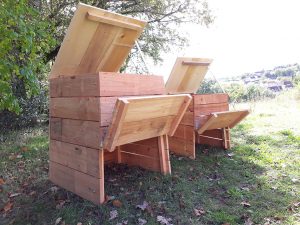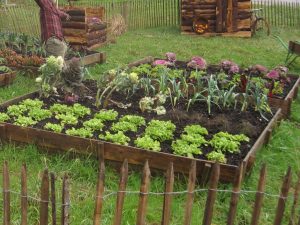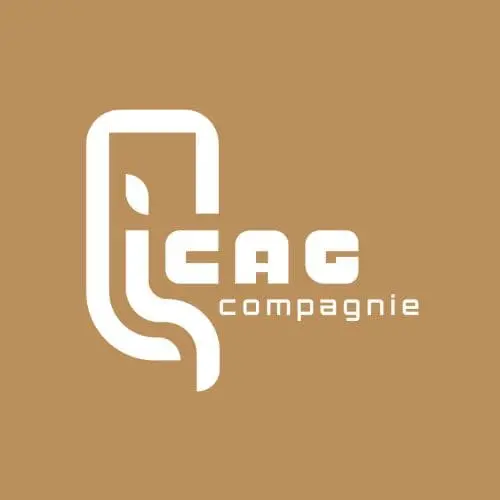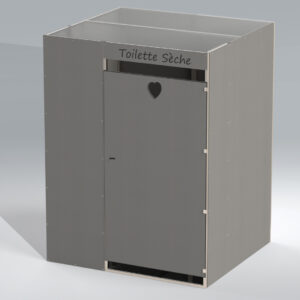If you use dry toilets, you have no choice but to compost your waste, as the law requires it. For some people, composting is considered an “art.” If you’re not a composting expert, we recommend using dry toilet compost for your ornamental plants and trees rather than for your vegetable garden.
What Is Composting?
The word “compost” comes from the Latin word “compositus,” which means “put together.”
Composting with dry toilet waste is a controlled process of decomposition and transformation of biodegradable organic waste. Under the action of various microbial populations, evolving in aerobic (in the presence of oxygen) or anaerobic (in the absence of oxygen) environments, humus can form.
Anything that decomposes is offered to earthworms, bacteria, fungi, actinomycetes, millipedes, and springtails. So, all kinds of critters can feed on it.
For What Purpose?
The purpose of these transformations is, of course, to return organic matter to the soil to improve fertility. Giving back to the earth what comes from the earth is ecological and excellent for the garden.
In conventional toilets, once you’ve done your business, the waste goes into a costly and not particularly environmentally friendly water treatment cycle. In composting dry toilets, both feces and urine, along with the litter, are collected and utilized.
Using dry toilets makes you responsible for setting up the recycling process for your waste. This requires you to engage in composting.
The Rules:
The law and common sense, when using dry toilets, require the composting of organic materials (feces, urine, and paper).
In France, the law mandates composting dry toilet waste under certain conditions.
Composting must be done in a closed container on a waterproof surface. Open-air composting piles are strictly prohibited.
It is logical not to separate the compost from the ground. In France, composting residues from litter-based dry toilets can only be done separately from the ground. Local “SPANC” authorities, however, allow composting directly on the ground for small quantities for individuals. Nevertheless, the compost bin must have a cover to prevent waste from getting rinsed away during heavy rains.
How to Compost:
If you already compost your garden waste or kitchen scraps, you know the principle, and there should be no problem adapting. If this is new to you, you will need to understand the basic principles.
As long as you maintain a good balance between dry and wet materials, composting occurs naturally. Composting can be divided into two distinct phases: decomposition and maturation.

At the beginning of composting, only microorganisms are active. This phase, during which a lot of oxygen is consumed and the temperature rises, is called the decomposition phase. During the decomposition phase, a reduction in volume is noticeable.
The maturation phase is the slowest. It is mainly the macro fauna that is active, not the microorganisms. The compost is then completely transformed into humus. After about a year, once the “larger” creatures have worked hard, the humus is stable, and your compost is complete.
Where to Compost Dry Toilet Waste:
For dry toilet waste, composting must be done in a bin, so you need a minimum of two square meters to set up a composter.
What to Do with Humus Once Dry Toilet Composting Is Complete:

jardin potager après apport de compost
You can use the humus for your ornamental garden or vegetable garden after 2 years from the last addition.
Good to Know…
Using dry toilets and thus composting does not require the use of “dried tree leaves for wiping!!!”
You can use any type of toilet paper. However, if you want to stay eco-friendly, opt for recycled and unbleached paper. Similarly, you can use various carbon-based materials as litter. Chopped straw, chopped hemp, wood shavings, etc., are suitable, but sawdust is the most practical and effective.
Some dry toilet systems, especially those with urine separation, do not favor composting.
Separating urine makes it difficult to achieve the right balance between dry and wet materials and between nitrogen and carbon.
For some people, composting is almost an art. If you have the patience and expertise, there’s no problem. But if you have doubts about the quality of your compost, it’s better not to use it in your vegetable garden but rather on your hedges, shrubs, or plants.
As with any practice, it’s essential to educate yourself before advancing further in the use of dry toilet compost for your garden.


















